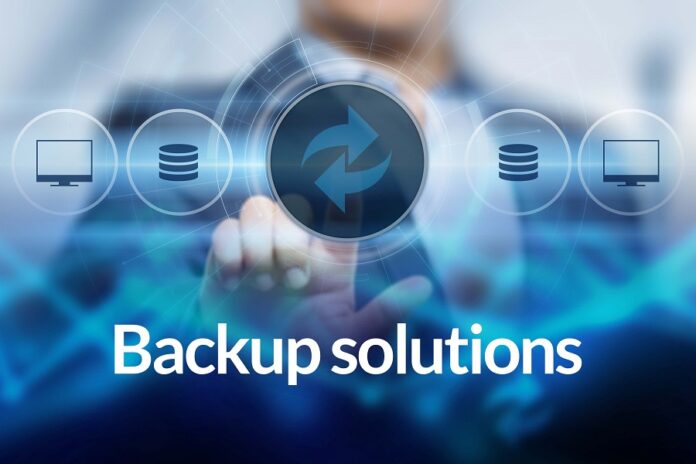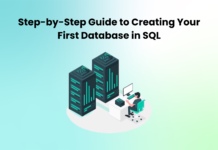What are your thoughts on backup solutions? Do you feel they are helpful and necessary, or could you live without them? In this blog post, we will explore the topic of backup solutions in depth, and discuss what they are, how they work, and how you can find one that is right for you. We’ll also answer some common questions about backup solutions to help you better understand this important technology. So if you’re curious about backup solutions and want to learn more, read on!
What are Backup Solutions?
Backup solutions are tools and services that help you protect your data from loss or corruption. They can be used to create backups of files, databases, and entire systems, and can be either on-site (stored locally) or off-site (stored remotely).
How Do Backup Solutions Work?
Most backup solutions work by taking a copy of your data and storing it in a safe location, either on-site or off-site. They will typically use some form of compression to reduce the size of the backup, and may also encrypt the data to protect it from unauthorized access.
Some backup solutions will also offer additional features such as incremental backups (which only back up changed files since the last backup), versioning (which keeps multiple copies of files so you can restore an older version if necessary), and snapshotting (which takes a “snapshot” of your entire system at a specific point in time).
Also, Read: Migrating e commerce to cloud: Benefits, And Tips to Implement
Why Do You Need a Backup Solution?
Having a backup solution is important because it helps you protect your data from loss or corruption. If your computer crashes or gets infected with malware, you can restore your data from the backup. And if you accidentally delete a file or make changes that you later regret, you can usually restore an older version from the backup.
Advantages of Using Backup Solutions
There are many advantages to using backup solutions, including:
- They help you protect your data from loss or corruption.
- They can be used to create backups of files, databases, and entire systems.
- Most backup solutions use some form of compression to reduce the size of the backup.
- Some backup solutions offer additional features such as incremental backups, versioning, and snapshotting.
- They can be either on-site (stored locally) or off-site (stored remotely).
- They help you meet your business continuity and disaster recovery goals.
- They can save you time and money by automating the backup process.
- They can make it easy to share backups with others (e.g., employees, clients, etc.).
- They can provide peace of mind knowing that your data is safe and can be restored if necessary.
Disadvantages of Using Backup Solutions
There are also some disadvantages to using backup solutions, including:
- They can be expensive, especially if you need a lot of storage space.
- They require regular maintenance and updates.
- They can be complex to set up and manage.
- They can slow down your computer if you are backing up large files or databases.
- They may not be able to restore all of your data if it is lost or corrupted.
How to Choose a Backup Solution?
When choosing a backup solution, there are several things you should consider, including:
1. Your Budget.
It’s important to choose a backup solution that fits your budget. Some solutions can be very expensive, especially if you need a lot of storage space.
2. The Type of Data You Are Backing up.
You should choose a backup solution that is designed to handle the type of data you are backing up. For example, if you are backing up large files or databases, you will need a solution that can handle that type of data.
3. The Frequency of Backups.
You should choose a backup solution that allows you to schedule backups as frequently as you need them. Some solutions only allow you to schedule backups once a day, while others may allow you to schedule them hourly or even more frequently.
4. The Location of Backups.
You should choose a backup solution that allows you to store backups either on-site or off-site. On-site backups are typically stored on an external hard drive or other storage device, while off-site backups are typically stored in the cloud.
5. The Ability to Restore Data.
You should choose a backup solution that allows you to easily restore data if necessary. Some solutions only allow you to restore data from the most recent backup, while others may allow you to restore data from any point in time.
6. The Ease of Use.
You should choose a backup solution that is easy to use. Some solutions can be very complex to set up and manage, so it’s important to choose one that is easy to use.
7. The Support Services.
You should choose a backup solution that offers support services in case you have any problems using the solution. Some solutions only offer support through online forums, while others may offer phone or email support.
8. The Compatibility.
You should choose a backup solution that is compatible with your operating system and other software. Some solutions only work with specific operating systems or software, so it’s important to choose one that is compatible with your setup.
Conclusion:
We hope this article has helped you understand the advantages and disadvantages of using backup solutions. If you’re looking for a backup solution, be sure to consider the factors listed above. Thanks for reading!
FAQs
1. What is a backup solution?
A backup solution is a software or hardware that helps you create and store backups of your data.
2. What are the advantages of using backup solutions?
There are several advantages to using backup solutions, including: they can save you time and money by automating the backup process; they can make it easy to restore lost or corrupted data; and they can provide peace of mind knowing that your data is safe.
3. What are the disadvantages of using backup solutions?
There are also some disadvantages to using backup solutions, including: they can be expensive; they require regular maintenance and updates; they can be complex to set up and manage; and they may not be able to restore all of your data if it is lost or corrupted.
4. How do I choose a backup solution?
When choosing a backup solution, there are several things you should consider, including: your budget; the type of data you are backing up; the frequency of backups; the location of backups; the ability to restore data; the ease of use; the support services; and the compatibility.
5. What is the best backup solution?
There is no single “best” backup solution, as there are many different solutions available, and each has its own advantages and disadvantages. You should choose a backup solution that is right for you, based on your specific needs and requirements.
Read Also : What Machine Learning Can Learn from Text Annotation

































